Mehrdad Saadatmand
Machine Learning Testing in an ADAS Case Study Using Simulation-Integrated Bio-Inspired Search-Based Testing
Mar 22, 2022
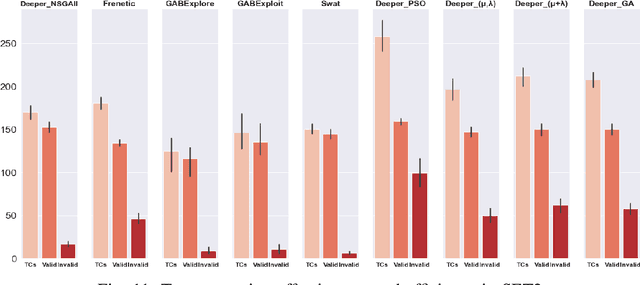


Abstract:This paper presents an extended version of Deeper, a search-based simulation-integrated test solution that generates failure-revealing test scenarios for testing a deep neural network-based lane-keeping system. In the newly proposed version, we utilize a new set of bio-inspired search algorithms, genetic algorithm (GA), $({\mu}+{\lambda})$ and $({\mu},{\lambda})$ evolution strategies (ES), and particle swarm optimization (PSO), that leverage a quality population seed and domain-specific cross-over and mutation operations tailored for the presentation model used for modeling the test scenarios. In order to demonstrate the capabilities of the new test generators within Deeper, we carry out an empirical evaluation and comparison with regard to the results of five participating tools in the cyber-physical systems testing competition at SBST 2021. Our evaluation shows the newly proposed test generators in Deeper not only represent a considerable improvement on the previous version but also prove to be effective and efficient in provoking a considerable number of diverse failure-revealing test scenarios for testing an ML-driven lane-keeping system. They can trigger several failures while promoting test scenario diversity, under a limited test time budget, high target failure severity, and strict speed limit constraints.
HMS-OS: Improving the Human Mental Search Optimisation Algorithm by Grouping in both Search and Objective Space
Dec 03, 2021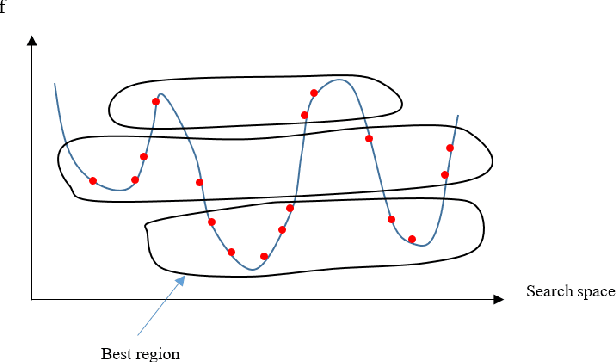
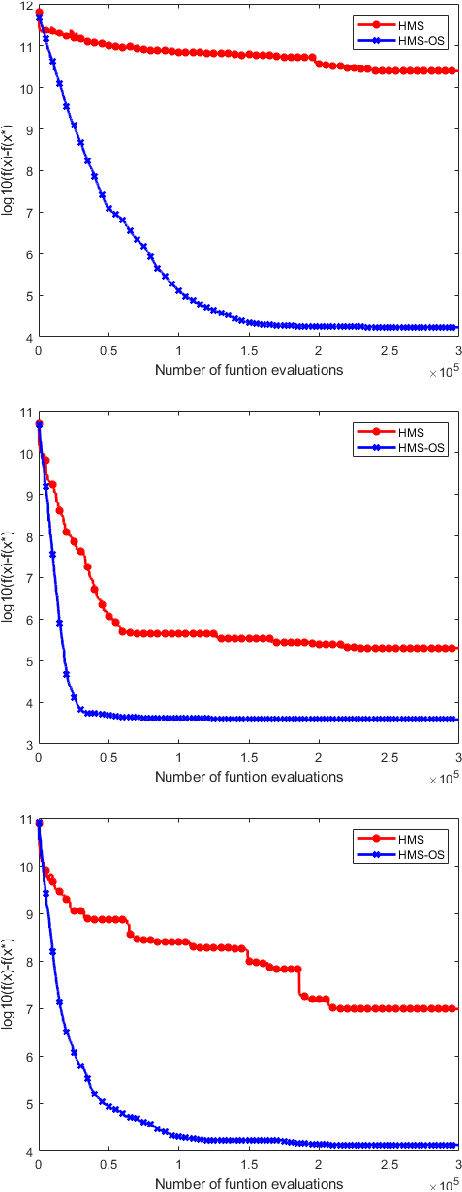
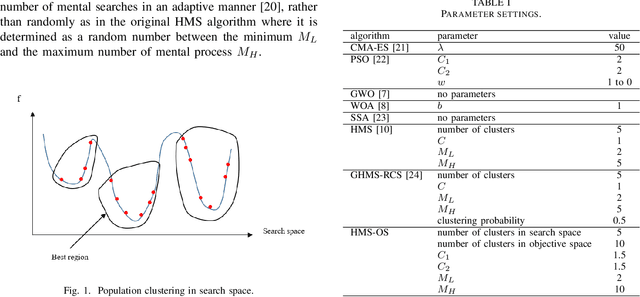

Abstract:The human mental search (HMS) algorithm is a relatively recent population-based metaheuristic algorithm, which has shown competitive performance in solving complex optimisation problems. It is based on three main operators: mental search, grouping, and movement. In the original HMS algorithm, a clustering algorithm is used to group the current population in order to identify a promising region in search space, while candidate solutions then move towards the best candidate solution in the promising region. In this paper, we propose a novel HMS algorithm, HMS-OS, which is based on clustering in both objective and search space, where clustering in objective space finds a set of best candidate solutions whose centroid is then also used in updating the population. For further improvement, HMSOS benefits from an adaptive selection of the number of mental processes in the mental search operator. Experimental results on CEC-2017 benchmark functions with dimensionalities of 50 and 100, and in comparison to other optimisation algorithms, indicate that HMS-OS yields excellent performance, superior to those of other methods.
An LSTM-based Plagiarism Detection via Attention Mechanism and a Population-based Approach for Pre-Training Parameters with imbalanced Classes
Oct 17, 2021



Abstract:Plagiarism is one of the leading problems in academic and industrial environments, which its goal is to find the similar items in a typical document or source code. This paper proposes an architecture based on a Long Short-Term Memory (LSTM) and attention mechanism called LSTM-AM-ABC boosted by a population-based approach for parameter initialization. Gradient-based optimization algorithms such as back-propagation (BP) are widely used in the literature for learning process in LSTM, attention mechanism, and feed-forward neural network, while they suffer from some problems such as getting stuck in local optima. To tackle this problem, population-based metaheuristic (PBMH) algorithms can be used. To this end, this paper employs a PBMH algorithm, artificial bee colony (ABC), to moderate the problem. Our proposed algorithm can find the initial values for model learning in all LSTM, attention mechanism, and feed-forward neural network, simultaneously. In other words, ABC algorithm finds a promising point for starting BP algorithm. For evaluation, we compare our proposed algorithm with both conventional and population-based methods. The results clearly show that the proposed method can provide competitive performance.
An Enhanced Differential Evolution Algorithm Using a Novel Clustering-based Mutation Operator
Sep 20, 2021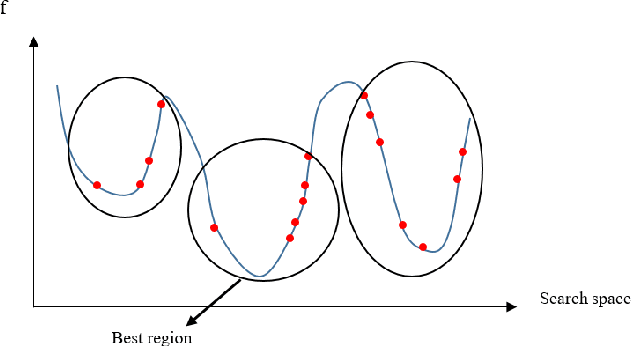
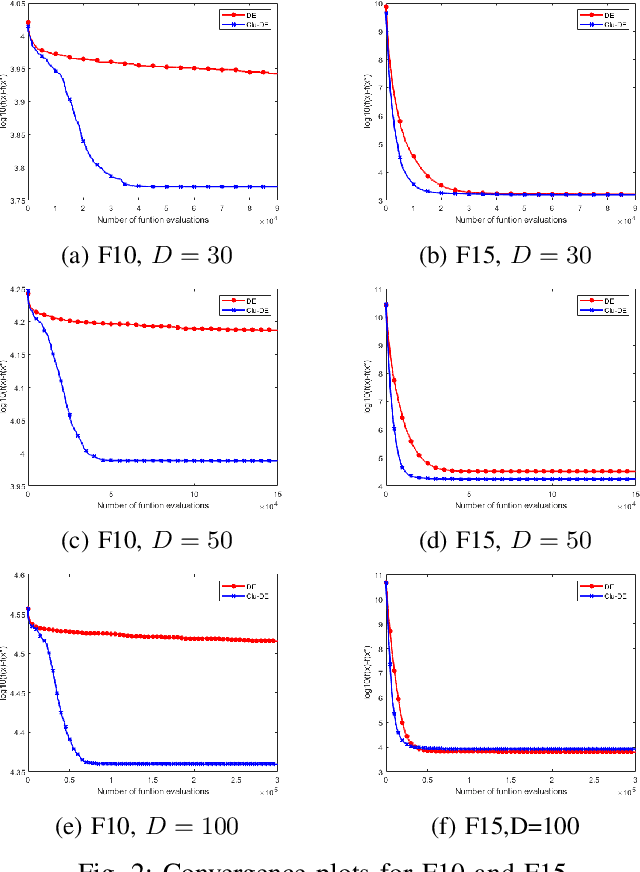
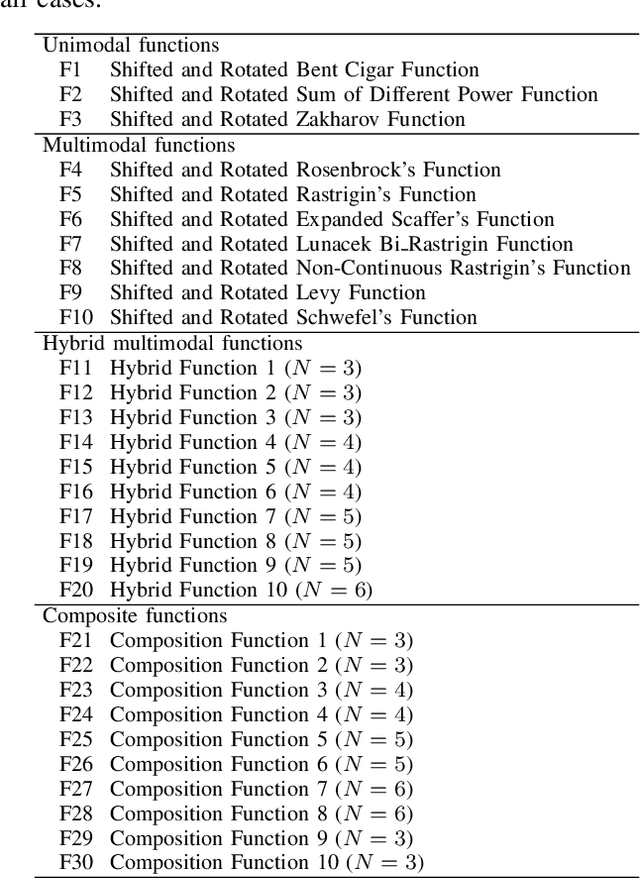

Abstract:Differential evolution (DE) is an effective population-based metaheuristic algorithm for solving complex optimisation problems. However, the performance of DE is sensitive to the mutation operator. In this paper, we propose a novel DE algorithm, Clu-DE, that improves the efficacy of DE using a novel clustering-based mutation operator. First, we find, using a clustering algorithm, a winner cluster in search space and select the best candidate solution in this cluster as the base vector in the mutation operator. Then, an updating scheme is introduced to include new candidate solutions in the current population. Experimental results on CEC-2017 benchmark functions with dimensionalities of 30, 50 and 100 confirm that Clu-DE yields improved performance compared to DE.
Automated Performance Testing Based on Active Deep Learning
Apr 05, 2021
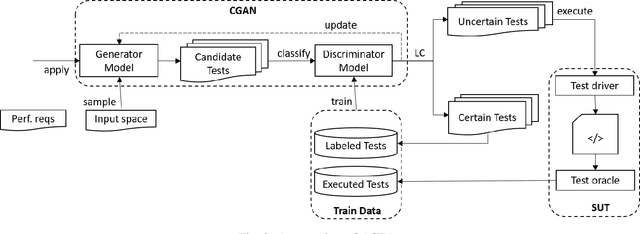
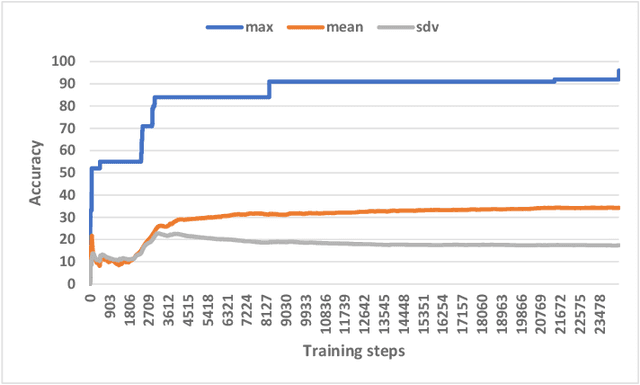
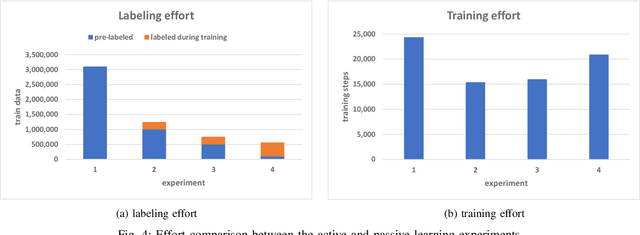
Abstract:Generating tests that can reveal performance issues in large and complex software systems within a reasonable amount of time is a challenging task. On one hand, there are numerous combinations of input data values to explore. On the other hand, we have a limited test budget to execute tests. What makes this task even more difficult is the lack of access to source code and the internal details of these systems. In this paper, we present an automated test generation method called ACTA for black-box performance testing. ACTA is based on active learning, which means that it does not require a large set of historical test data to learn about the performance characteristics of the system under test. Instead, it dynamically chooses the tests to execute using uncertainty sampling. ACTA relies on a conditional variant of generative adversarial networks,and facilitates specifying performance requirements in terms of conditions and generating tests that address those conditions.We have evaluated ACTA on a benchmark web application, and the experimental results indicate that this method is comparable with random testing, and two other machine learning methods,i.e. PerfXRL and DN.
An Autonomous Performance Testing Framework using Self-Adaptive Fuzzy Reinforcement Learning
Aug 19, 2019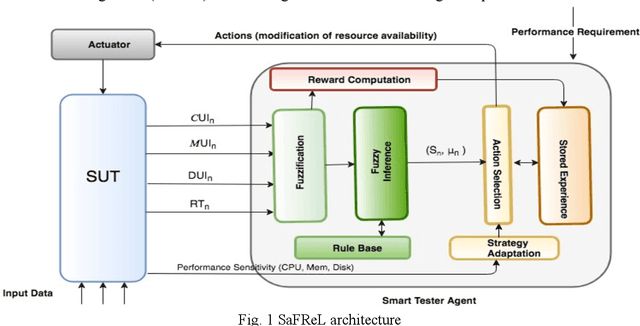

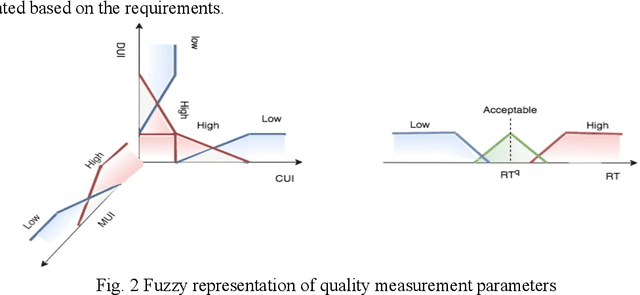
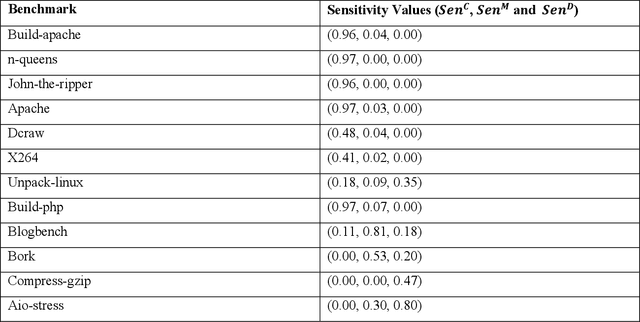
Abstract:Test automation can result in reduction in cost and human effort. If the optimal policy, the course of actions taken, for the intended objective in a testing process could be learnt by the testing system (e.g., a smart tester agent), then it could be reused in similar situations, thus leading to higher efficiency, i.e., less computational time. Automating stress testing to find performance breaking points remains a challenge for complex software systems. Common approaches are mainly based on source code or system model analysis or use-case based techniques. However, source code or system models might not be available at testing time. In this paper, we propose a self-adaptive fuzzy reinforcement learning-based performance (stress) testing framework (SaFReL) that enables the tester agent to learn the optimal policy for generating stress test cases leading to performance breaking point without access to performance model of the system under test. SaFReL learns the optimal policy through an initial learning, then reuses it during a transfer learning phase, while keeping the learning running in the long-term. Through multiple experiments on a simulated environment, we demonstrate that our approach generates the stress test cases for different programs efficiently and adaptively without access to performance models.
 Add to Chrome
Add to Chrome Add to Firefox
Add to Firefox Add to Edge
Add to Edge